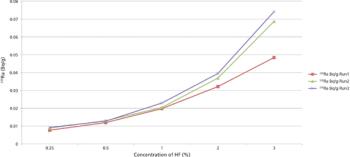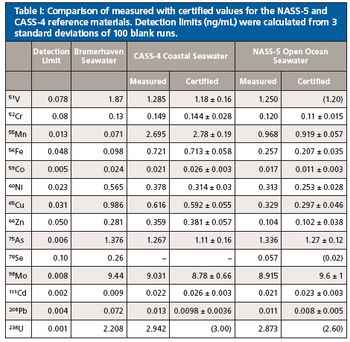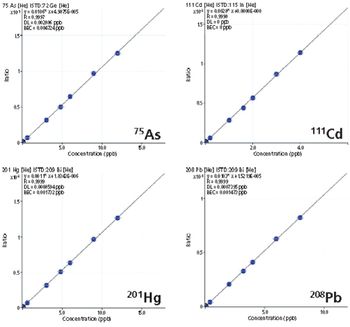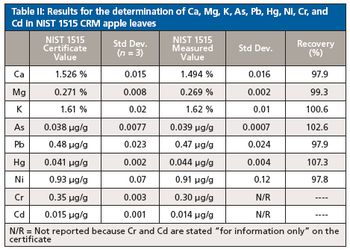
Special Issues
This article describes a way to measure 226Ra using inductively coupled plasma–mass spectrometry (ICP-MS) rather than the conventional method of gamma spectroscopy, taking into account an undocumented interference (207Pb19F) that is caused by the requirement to use hydrofluoric acid during sample preparation. The unusually high Pb levels observed in a number of soil samples caused significant interferences at the very low concentrations of 226Ra that were measured. The expected 208Pb18O interference was insignificant under optimized instrument conditions.



